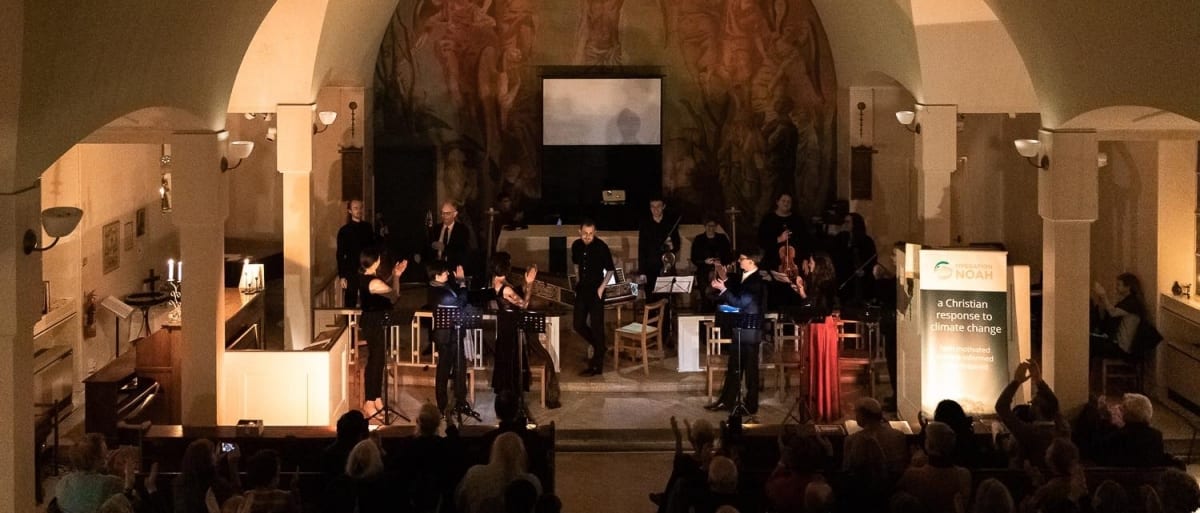Musica Antica Rotherhithe is a group of enterprising young performers who mostly perform rare pieces of music from the baroque period. This beautiful work by Sicilian composer, Michelangelo Falvetti, was written for the Duomo in Messina in 1682. In that year in England, the construction of the Royal Hospital Chelsea began at the order of Charles II. It is unusual for the period in that, although it is an oratorio based on the biblical story of Noah and his Ark, it is pretty close to being an opera – it has a secular libretto featuring both human characters and spirits embodying worldly concerns, Justice, Death, and Human Nature. It contains an extraordinary range of music from quasi-sacred madrigals to semi-operatic ensembles. And in the lovely setting of Holy Trinity Church with its Hans Feibuch mural, with fine singing and authentic baroque instruments, it sounded wonderful.
The work opens with a prologue in which Divine Justice announces that God’s pity has been exhausted and summons the Elements to assist in mankind’s punishment. Caitlin Goreing as Divine Justice has a remarkable voice – a mezzo-soprano with a rich warm tone and gorgeously strong in the deepest part of her register. Although the subject of the musical discussion between Divine Justice and Earth, Water, Fire, and Air is sombre, the music is anything but with an intriguing madrigal-like quality.
The main part of the work is labelled dialogo and does indeed consist mainly of musical conversations between Noah and his wife Rad, and between Noah and God. Oliver Doyle singing Noah and Camilla Seale singing Rad were excellent and their touching exchanges culminate in a brief and beautiful duet “Great God of Pity”. God then appears – sung with style by bass Joachim Sabbat, standing in the organ loft behind the audience. Noah seeks to placate God but receives only the promise that he and his family will be spared. This section closes with a sublime trio beautifully sung by Noah’s children – “Thanks be to the almighty hand”.
Death, sung by counter-tenor Tristram Cooke, then appears with hood and scythe but is not quite the ominous figure we expect. He embarks upon a debate with Human Nature sung by Jessica Eucker which mirrors the discussion between God and Noah and leads to the same conclusion – “Under the assault of mighty Death, the valour of every strong soul will fall” No mercy! After this, Noah and Rad re-appear to welcome the end of the flood and this is followed by a beautiful quintet “My heart rejoices” in which the talents of the singers of Musica Antica really do shine.
The ‘band’ consists of a group of musicians with an impressive pedigree in baroque music making. Christopher Jeanes at the harpsichord impressed as did Peter Martin with theorbo but this really is an ensemble – Musica Antica performed this work without a conductor, as was often the case in the seventeenth century. This places a premium on responsiveness of the performers to each other. In this performance that spirit of cohesive musicianship certainly triumphed. Long may Musica Antica continue to unearth these rare treasures and perform them with style and beauty.

